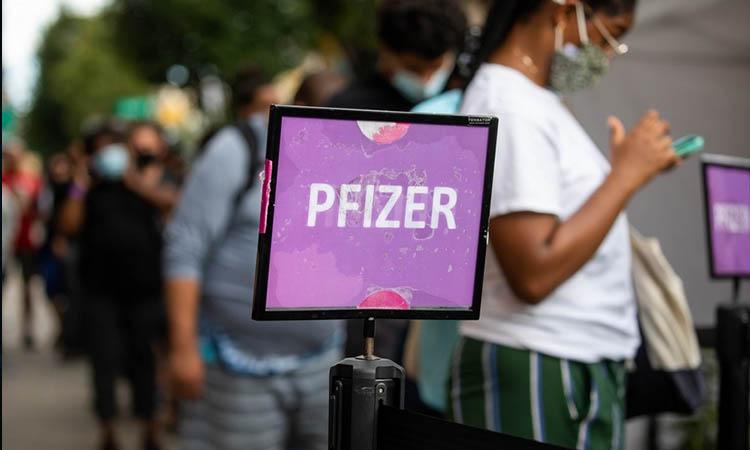A third vaccine dose of Pfizer-BioNTech is effective in reducing severe Covid-19-related outcomes compared to individuals who have received two vaccine doses at least five months ago, finds a new study.
The results show that, compared with individuals who received only two doses five months prior, individuals who received three doses of the vaccine (7 days or more after the third dose) had 92 per cent lower risk of severe Covid-19 disease and 81 per cent lower risk of Covid-19-related death.
"These results show convincingly that the third dose of the vaccine is highly effective against severe Covid-19-related outcomes in different age groups and population subgroups, one week after the third dose," said researcher Ran Balicer from the Clalit Research Institute in Israel.
"These data should facilitate informed policy decision-making," Balicer added.
For the study, published in The Lancet journal, the team reviewed data from 7,28,321 individuals aged 12 or above who had received the third dose of the BNT162b2 vaccine.
These individuals were carefully matched 1:1 with 7,28,321 individuals who had received only two shots of the BNT162b2 vaccine at least five months prior.
The matching was based on an extensive set of demographic, geographic and health-related attributes associated with risk of infection, risk of severe disease, health status and health-seeking behaviour.
Individuals were assigned to each group dynamically based on their changing vaccination status (1,98,476 individuals moved from the unvaccinated cohort into the vaccinated cohort during the study).
Multiple analyses were conducted to ensure that the estimated vaccine effectiveness was robust to potential biases.


















